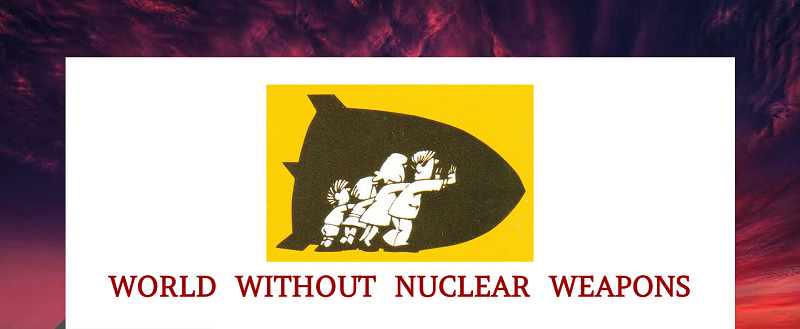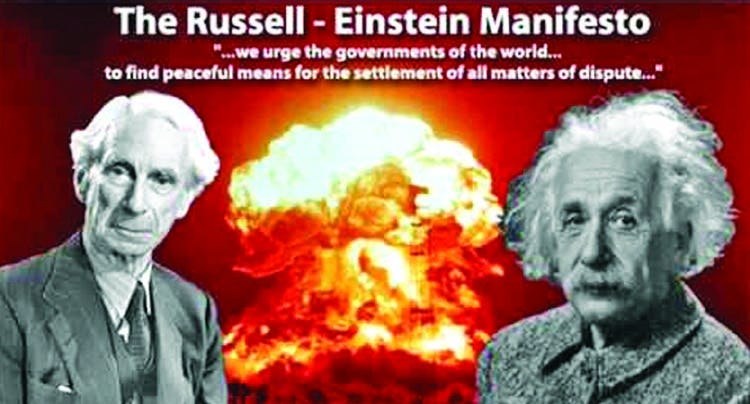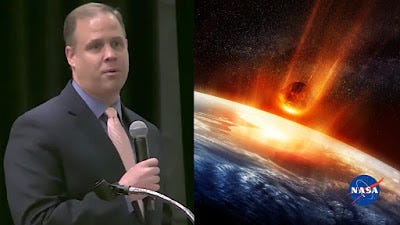World without nuclear weapons
From the UN Summit of the Future to a world free of nuclear weapons?
What I expected from the outset is slowly starting to emerge in the announcements from civil society: The disappointment is there. Some are still trying to disguise it in a positive light. It sounds like ‘it didn't help, but it was nice that we were there’. All of this painted with colourful photos on social networks. The networkers of ‘Abolition 2000’ were able to gain something from the agreed Future Pact after all and want to continue working with it.
At the Summit of the Future, world leaders agreed that “A nuclear war would visit devastation upon all humankind and we must make every effort to avert the danger of such a war… a nuclear war cannot be won and must never be fought”. They decided to “Recommit to the goal of the total elimination of nuclear weapons” and to “strengthening the disarmament and non-proliferation architecture and work to prevent any erosion of existing international norms and take all possible steps to prevent nuclear war."
‘Abolition 2000’ had invited people to a webinar on 1 October. The statements made there did not sound particularly optimistic. These were all arguments that have been known for a long time. The fact that leading politicians from many nations are committed to nuclear disarmament is nothing new. Since 2017, the United Nations General Assembly has adopted a binding Treaty on the Prohibition of Nuclear Weapons under international law. The International Campaign to Abolish Nuclear Weapons (ICAN), which was involved in the treaty, was awarded the Nobel Peace Prize in the same year. However, neither the disarmament advocates nor the Nobel Prize Committee are decisive here, but the leading politicians of the nations that possess nuclear weapons. And the prohibition of nuclear weapons does not apply to them because they have not agreed to it. So the criminal cannot be held responsible because he rejects the law. This is how international law works.
Is a world without nuclear weapons even possible?
The world has always been without nuclear weapons, until 16 July 1945, when the first atomic bomb was successfully tested in the New Mexico desert. However, the world was anything but peaceful before that, as history teaches us. Since the bombs were dropped on Hiroshima and Nagasaki three weeks later, nuclear weapons have not been used for military purposes. To date, however, more than 2,000 nuclear weapons tests have taken place, of which Hiroshima and Nagasaki should also be counted. Officially, these two war missions are still declared to be militarily necessary to end the war, which seems more than dubious on closer inspection.
As there has not been another world war since 1945, nuclear armament is seen by its proponents as a successful means of securing peace through deterrence. This ignores the fact that countless proxy wars raged during the Cold War, starting in 1950 with the Korean War, which taken together can certainly be regarded as an unofficial Third World War. This continues to this day. Humanity has also been on the brink several times. Just think of the Cuban Missile Crisis of 1962, where situations have repeatedly arisen in which a nuclear war would have broken out by a hair's breadth. The events surrounding the NATO exercise ‘Able Archer’ in 1983, for example, bear witness to this.
Even though the danger of nuclear war was averted for a time, today we hear more and more direct threats to use nuclear weapons. Any sensible person would wish for a world without this devil's stuff. This world must come about if we want to save humanity from self-destruction. In 1955, Albert Einstein, Bertrand Russell and other scientists signed a manifesto that emphasised the dangers and possible consequences of nuclear war. There are now a large number of scientific and political declarations that similarly attempt to persuade the world's national governments to renounce weapons of mass destruction. Ukraine would no longer do this today.
A world free of nuclear weapons - and then what?
Every year, the victims of the atomic bombings of Hiroshima (6 August 1945) and Nagasaki (9 August 1945) are commemorated worldwide. They should never be forgotten, because the scale of the devastation they caused was beyond all previous imagination. So it is absolutely right to oppose any nuclear weaponisation, because the risks are simply too gigantic. With a little cynicism, you could put it like this: The current wars with conventional weapons are almost harmless in comparison.
In 2016, Hiroshima Mayor Matsui called on the world to unite to abolish all nuclear weapons. He found colleagues around the world to support him in this endeavour: Mayors for Peace. There are now over 7000 mayors representing their cities and municipalities in this global organisation. It is inspiring to see how much support there is for the desire for a world free of nuclear weapons. A variety of peace campaigns bear witness to this. But how realistic is this desire for a world free of nuclear weapons?
Partial successes can be achieved if nuclear weapons are withdrawn from certain locations and nuclear weapon-free zones are created. However, a world free of nuclear weapons is a utopia under the current circumstances. Even if all existing nuclear bombs are scrapped, the knowledge about the production of such weapons of mass destruction remains in mankind and can be used for armament at any time. In order to achieve the goal of global nuclear disarmament at all and then to maintain this status, the unification of the world is indeed necessary (Mayor Matsui).
The unification of humanity is a prerequisite
It's like everything else: If the goals achieved are not safeguarded, the results of all endeavours can be wiped out overnight. We need genuine world law for this. Current international law is too weak for this. Take, for example, the 1987 INF Treaty on the disarmament of medium-range nuclear missiles, when hundreds of thousands of people concerned about the future demonstrated for years against the deployment of this type of weapon of mass destruction, which is extremely dangerous due to its short warning times. The political leaders of the two major power blocs, Gorbachev and Reagen, finally let reason prevail. The INF Treaty can now be forgotten. Today, we are once again very close to a nuclear war.
Anyone who seriously wants to advocate a world free of nuclear weapons must also be open to the positive utopia of a democratic world federation with binding and enforceable world law. This world law would have to prevent the attempt to manufacture or acquire weapons of mass destruction and criminalise it as a world crime. The administration of the World Union alone should be authorised to keep a small number of nuclear bombs ready, for example to change the orbit of asteroids that are on a collision course with the Earth. In such a case, nuclear bombs could even save the world. Of all the many peace activists campaigning for a world free of nuclear weapons, who among the mayors for peace is prepared to support the option of a democratic development of the United Nations to make wars impossible? The UN Summit of the Future did not provide an answer.
There is no way round a federal World Union for a better future in peace, freedom and security. This realisation must be propagated more than ever in the efforts for a better world. Anyone who believes that universal justice and lasting peace can be realised worldwide without the political unification of humanity is dreaming a dream without substance.
United Mankind Initiative (google.com)
Addendum:
Nobel Peace Prize 2024 goes to the anti-nuclear weapons organisation Nihon Hidankyo






